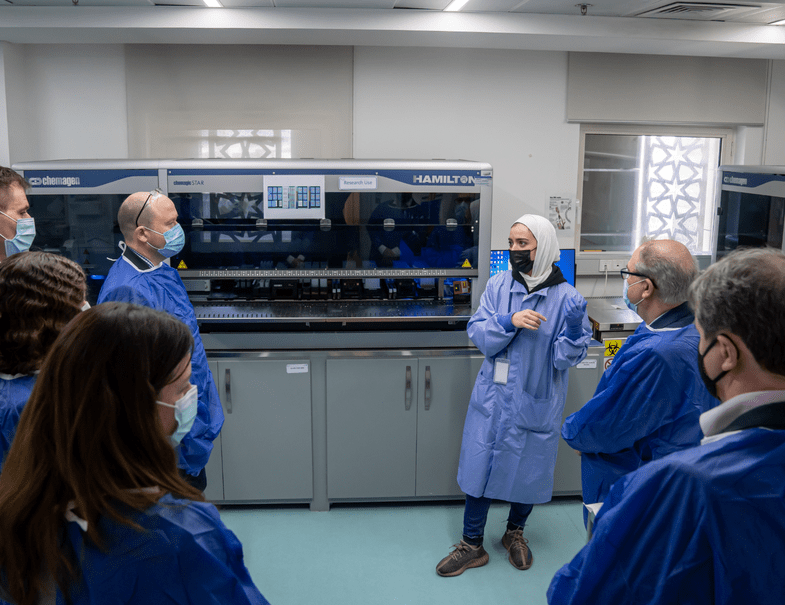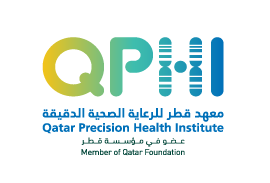Pharmacogenomics

Pharmacogenomics
Pharmacogenomics (PGx) uses an individual’s genetic information to identify the right drug at the right dose at the right time. PGx information can maximize the therapeutic efficacy of the medications and prevent adverse drug reactions by identifying how specific genetic variations might affect individual responses to medications. QPHI is leading a national initiative to implement PGx in the Qatari healthcare settings to improve medication safety and efficacy and lower medical costs. This involves drugs related to national priority disorders including cancer and cardiovascular conditions. The following studies initiated are:
- Clopidogrel guided therapy
- Warfarin guided therapy
- Statin guided therapy
- Cancer pharmacogenomics
Future vision
The future plan is to implement preemptive PGx testing that would fit well with the current movement toward a patient-centered care model supported by recent healthcare reform in Qatar. The ultimate aim of QPHI/PGx projects is to develop the necessary infrastructure including process and system integration components in addition to building bioinformatics capacity for interpretation genomic sequences and producing clinical-grade reports for clinically actionable (CPIC Level A) medication


Pharmacogenomics
Overview
Pharmacogenomics (PGx) utilizes an individual's genetic profile to predict drug responses allows for personalized drug and dosage selection, thereby enhancing the safety and efficacy of treatments.
QPHI is leading the QPGx-CARES (Qatar Pharmacogenetics Clinical Applications and Research Enhancement Strategies) initiative, which aims to promote the advancement of pharmacogenomics in healthcare by standardizing its application across diverse healthcare settings.
The strategic focus of QPGx-CARES is on the clinical integration of PGx to address existing research gaps and tackle challenges related to PGx application in routine healthcare in Qatar. The QPGx-CARES initiative serves as a comprehensive plan and framework for the nationwide implementation of PGx services.
QPGx-CARES key elements for advancing pharmacogenetic research and clinical implementation in Qatar.
QGPx-CARES plans to provide PGx-guided therapy for the most common diseases in Qatar with substantial morbidity and cost burdens, including cardiovascular, cancer, and mental health medication. We are implementing PGx in clinical practice through two approaches; reactive and preemptive. The reactive approach is initiated when high-risk medications are prescribed or adverse drug reactions occur. While the preemptive approach aims to provide a comprehensive profiling of an individual's potential drug response, independent of the immediacy of medication needs.
Current status and future approach
As part of the QPGx-CARES initiative for PGx implementation, we prioritize launching pilot projects focused on cardiovascular medicine as a key step toward broader, systemic integration of PGx services. This includes expanding elements such as genotyping processes and clinical decision support tools for PGx-guided prescribing. Our current implementation projects lay the groundwork for personalizing medications based on genetic profiles, addressing barriers in real-world settings from the perspectives of all key stakeholders. The anticipated outcomes of the QPGx-CARES initiative will provide valuable insights into how PGx data can be effectively used to personalize treatments and improve patient outcomes.

